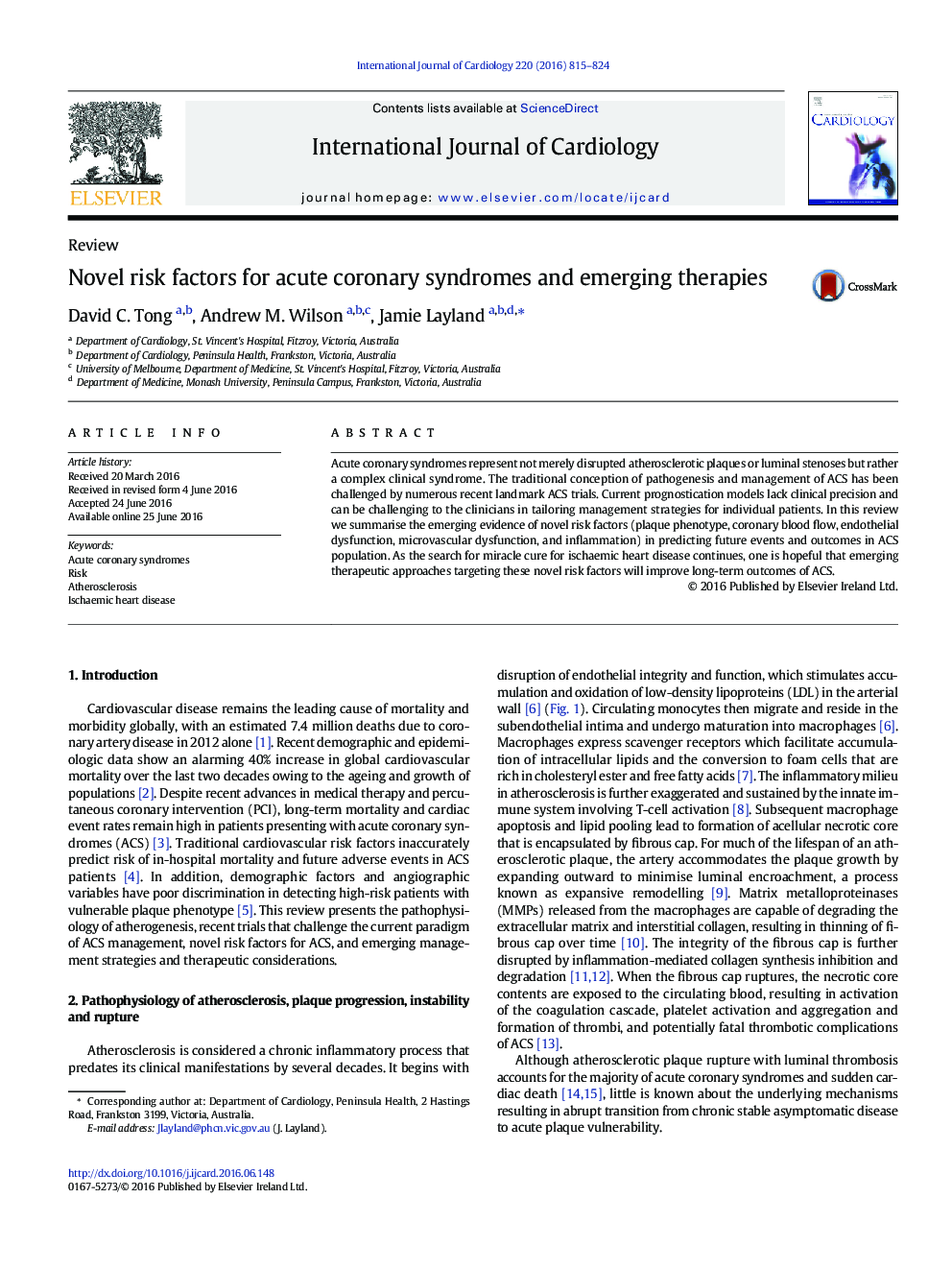| Article ID | Journal | Published Year | Pages | File Type |
|---|---|---|---|---|
| 5963355 | International Journal of Cardiology | 2016 | 10 Pages |
â¢Pathogenesis of ACS is a complex process involving multiple factors.â¢Current ACS prognostication models lack precision in predicting future events.â¢Novel ACS risk factors include plaque morphology, coronary physiology and biomarkers.â¢These novel risk factors may provide improved risk stratification and treatment strategies.
Acute coronary syndromes represent not merely disrupted atherosclerotic plaques or luminal stenoses but rather a complex clinical syndrome. The traditional conception of pathogenesis and management of ACS has been challenged by numerous recent landmark ACS trials. Current prognostication models lack clinical precision and can be challenging to the clinicians in tailoring management strategies for individual patients. In this review we summarise the emerging evidence of novel risk factors (plaque phenotype, coronary blood flow, endothelial dysfunction, microvascular dysfunction, and inflammation) in predicting future events and outcomes in ACS population. As the search for miracle cure for ischaemic heart disease continues, one is hopeful that emerging therapeutic approaches targeting these novel risk factors will improve long-term outcomes of ACS.
